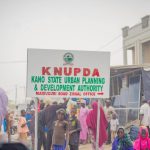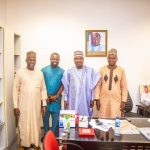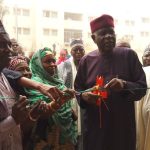The Emir of Rano, Alhaji Muhammad Isa Umar, has said residents of his emirate have embraced child spacing after understanding its health benefits.
Speaking at his palace on Friday during an interaction with journalists on a solution journalism field trip organised by Nigeria Health Watch in collaboration with MSI Nigeria Reproductive Choices and the Family Planning News Network, the emir said the practice was improving the health of women and children.
He said, “Our men have embraced the various methods of child spacing, which has reduced the tendency of giving birth to more children than a household can effectively manage. Our people are accessing the methods that best suit them.”
According to him, Islamic scholars also play a key role in sensitising the people. “On Fridays, our Islamic preachers tell the people about the importance of child spacing. They have seen the benefits, as children with spacing between them look healthier than those without,” he added.
The emir commended MSI Nigeria and other organisations for providing commodities to residents while urging them to ensure timely supply. “We always create awareness on health issues as soon as we receive information from the concerned agencies,” he said.
On the role of traditional institutions in healthcare delivery, Umar said district and village heads, as well as Fulani leaders (Jauros), were engaged in awareness campaigns because of the trust communities have in them.
He, however, decried the shortage of primary healthcare centres in the emirate. “We have primary healthcare centres in the emirate, but they are not enough. A large number of people find it difficult to access the facilities due to distance,” the emir lamented.
He warned that many avoidable deaths occur because patients cannot reach hospitals on time. While commending health workers for their commitment, he stressed the need for more facilities to ease access.
“The General Hospital in Rano is filling the gap as a secondary health institution, but we need more primary healthcare centres to attend to our people, especially in rural communities,” he said.






